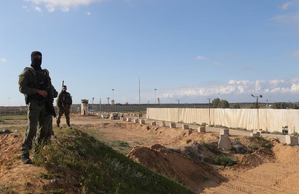Reports of spat with Netanyahu misleading: Germany

Germany’s Foreign Office is disputing as “misleading” an Israeli media report about a heated argument between Israeli Prime Minister Benjamin Netanyahu and German Foreign Minister Annalena Baerbock over the situation in the Gaza Strip.
“Key points in this account of the hour long meeting between Foreign Minister Baerbock and Prime Minister Netanyahu are wrong and misleading,” the Foreign Office wrote in a post to X, formerly Twitter, on Friday.
The German ambassador to Israel, Steffen Seibert, made the same statement without offering specifics.
A journalist from the Israeli TV station Channel 13 had previously reported that Baerbock reacted negatively when shown footage from the Gaza Strip depicting markets filled with food during a meeting in Israel on Wednesday.
Baerbock reportedly responded by pointing out widespread hunger in Gaza and offered to show Netanyahu pictures of starving children on her cell phone.
Netanyahu is said to have replied that she should look at photos of the markets and also of people on the beach, as there were no cases of hunger there.
According to the Channel 13 report, Baerbock advised him not to show the pictures as they did not correspond to the reality in the Gaza Strip.
Netanyahu, in turn, is said to have loudly replied that the photos were real and that Israel was not showing an invented reality like the Nazis. In 1942, for example, the Nazis had a film crew shoot a propaganda film with scenes of everyday life in the Warsaw ghetto, where Jews were forced to live in abysmal conditions.
Baerbock reportedly asked Netanyahu whether he was accusing doctors working in Gaza, as well as the international media, of lying about the situation.
The images of the market stalls filled with fruit and vegetables were published this week by COGAT, an Israeli agency within the Defence Ministry responsible for contacts with the Palestinian Territories and humanitarian aid.
The images show markets in the north of the coastal area, which is particularly affected by food shortages. According to COGAT and aid organizations, some food recently arrived in the area, although aid workers and residents say it remains far from enough.





